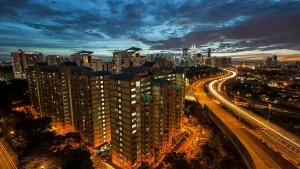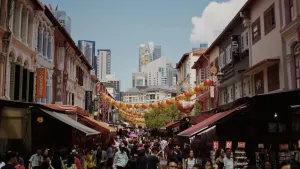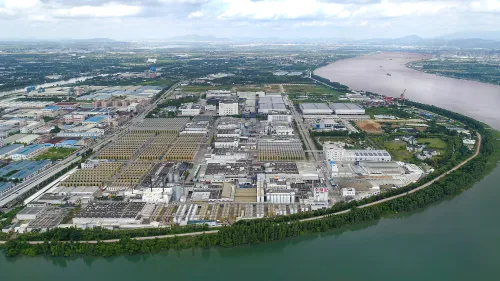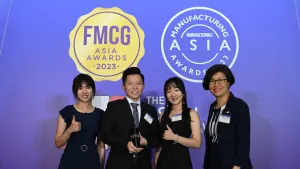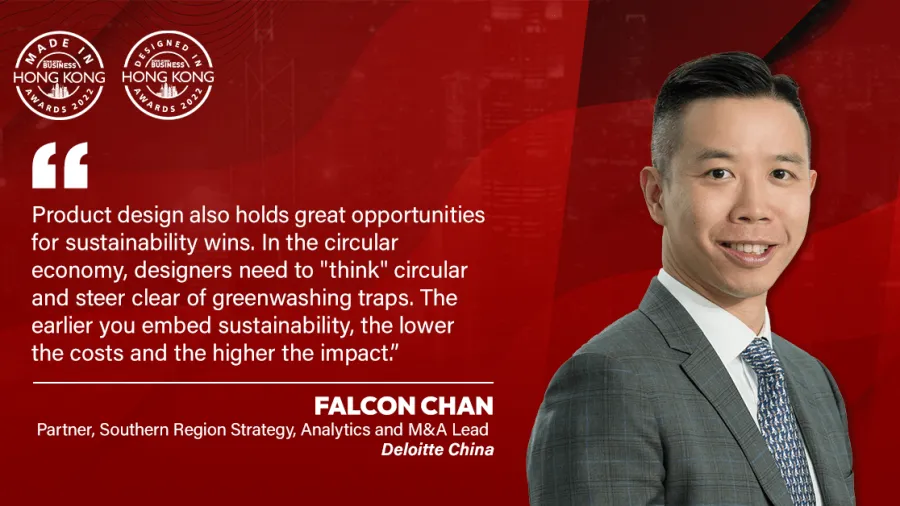
Resilience and agility are the competitive edge you need in sustainability: Deloitte Partner
Falcon Chan noted that digitisation is the key to unlocking net-zero for the industry; traditional labour-intensive factories are compelled to transform or get left behind.
Sustainability is now synonymous with being competitive for all industries, particularly in the manufacturing sector where sustainability is no longer a cost to be offset but a true value differentiator.
Reflecting on the Hong Kong manufacturing industry’s performance in the previous year, Falcon Chan, a Partner at Deloitte China and leader of Deloitte’s M&A Consulting Services in Southern China, pointed out that manufacturers will continue to face challenges in market access and talent shortages, amongst others. He added that many organisations have already invested in efforts to future-proof their respective businesses.
In his role, Chan advises multinational corporations, private equity funds, and Asia-based conglomerates across consumer products, retail, financial services, technology, and manufacturing sectors. His focus includes market entry strategy, corporate venturing and innovation ecosystems, commercial and operational due diligence, post-merger integration and enterprise digital transformation.
“Smart manufacturing must embrace big data to unlock opportunities in the upstream and downstream supply ecosystem,” Chan said. "To stay ahead of the curve and create a competitive edge, supply chain managers need to make informed and timely decisions, better and faster."
As one of the judges at the Made in Hong Kong and Designed in Hong Kong Awards 2022, Hong Kong Business sat down with the Deloitte China Partner as he provided insights on Hong Kong manufacturers’ sustainability goals and initiatives, its acceleration of digital technologies in the industry, as well as the trends that organisations should watch out for.
What do you think are some of the main issues that troubled Hong Kong manufacturers in the previous year? How have they adapted to these challenges?
The past two years have shown that optimising costs and efficiency in global supply chains are no longer enough. Now, resilience and agility are necessities to tackle supply chain disruptions and build sustainable competitive advantages.
In the post-pandemic economic recovery, Hong Kong manufacturers will continue to face hurdles in market access, technology, land and talent shortages. To future-proof the business, many enterprises have invested efforts to expand regional markets, deploy intelligent production lines and accelerate digital technology adoption. At the same time, operators engaged in traditional labour-intensive industries are compelled to digitise or be left behind.
Hong Kong's re-industrialisation needs to be firmly rooted in innovation and technology at its core. Besides rendering policy and funding support for the industrial upgrades, the government should foster the development of high-end value chains of research, development, and design to complement advanced manufacturing industries in the integrated Greater Bay Area.
Most countries and organisations are now committing to a more sustainable future and implementing their respective ESG programmes. How do you think this evolving landscape affects the manufacturing industry? What are the steps that manufacturers can take to ensure ESG compliance and create a competitive advantage in the market?
Net-zero transition and sustainable development goals are top on the agenda of governments, think tanks and companies worldwide. And the rise of environmental, social and governance factors is redefining sustainability in manufacturing like never before. Getting it is simple in principle, but a challenge to implement in practice.
Organisations with clear sustainability propositions are more likely to increase customer loyalty and attract new segments, as will manufacturers with a lower carbon footprint. The cost of capital can be linked to ESG ratings, making it a priority for financial health and competitiveness. Meanwhile, demands for diversity, equity, and inclusion metrics in manufacturing will continue to rise. To attract and retain talent and appeal to workforce expectations, manufacturers need to make ESG efforts highly transparent and visible. Some manufacturers, in the drive towards carbon neutrality, have dedicated or redesigned sustainability roles and quantified efforts around energy consumption.
Product design also holds great opportunities for sustainability wins. In the circular economy, designers need to "think" circular and steer clear of greenwashing traps. The earlier you embed sustainability, the lower the costs and the higher the impact. As more businesses bring rigour to advancing sustainability, they must delicately balance planet, profit and people impacts.
Where do you see Hong Kong’s manufacturing industry in the near future? Are there any key trends to watch out for in the coming years?
Hong Kong's prospects in advanced manufacturing are bright. As the government and the wider ecosystem promote re-industrialisation, nurture digital talents, and re-ignite the economy, we will see a structural transformation of industrial manufacturing. This will be backed by a technology revolution anchored on artificial intelligence and robotics, the Internet of Things, new materials and smart production lines. However, the buck does not stop here. Hong Kong needs to aggressively stimulate R&D and fund innovation activities, knowledge transfer and technology commercialisation by manufacturers. We see encouraging evidence of such smart adoption in fields such as nanotechnology, microelectronics and across the food industry.
For manufacturers, they should continue to build up resilience and agility through supply chain traceability, operational excellence, and industry collaborations in the Greater Bay Area and beyond. This in turn creates mutual benefits through better insights, more accuracy and less waste in the future of sustainable manufacturing.
Coming back to judge this year’s Made in Hong Kong Awards and Designed in Hong Kong Awards, what qualities did you look for in the winners?
The "Made in Hong Kong" label has signified internationally recognised quality and reliability for decades running. This year, beyond the fundamentals, I would love to see locally designed and produced products showcase originality and creativity. These should reflect an intimate understanding of market need, combined with effective use of smart technologies, innovative techniques and branding for the highest customer, environment and social impact. I look forward to being inspired by this year's entrees!

